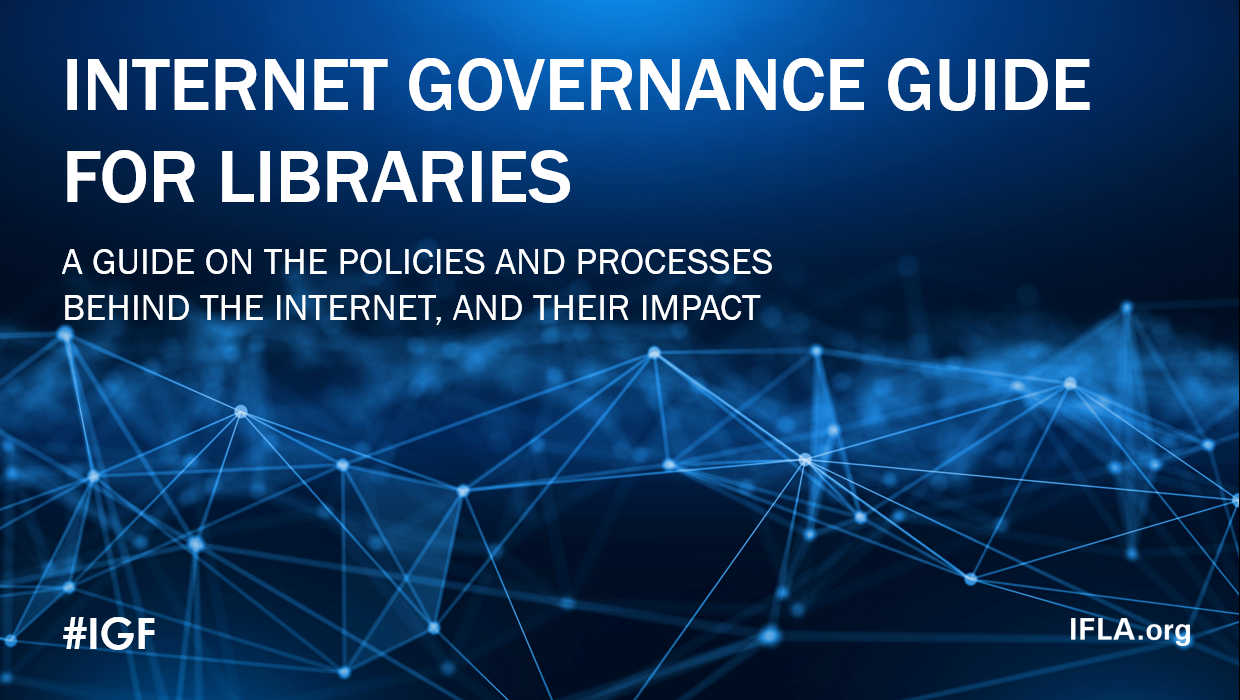Internet Governance Guide for Libraries

Internet governance is a complex field that covers the rules, norms and standards that determine how the internet – from the physical connections to the programmes and information that pass over it – works. Given the growing centrality of the internet in the work of libraries, libraries are key stakeholders.
Internet governance discussions cover decisions and debates across a range of policy areas, reflecting the interests, values and approaches of a wide range of stakeholders. While this makes for a broad focus, it also allows for a much more inclusive look at some of the key economic, social, cultural and civic questions we face today.
Libraries have a major interest in being part of this conversation. They rely on the internet in order to fulfil their mission to provide access to information from day to day, and have a long term interest in its future as a means of organising, sharing and spreading information globally.
To be able to engage, a basic understanding of Internet Governance issues is necessary, covering topics which are essential to the work of public libraries, including public access, censorship, digital rights, freedom of expression, and net neutrality, amongst others are essential to the work of libraries.
For this reason, IFLA has put together a guide that summarises the most important issues in the field, in the context of the wider Internet governance landscape and the stakeholders involved in shaping it.
Download the guide:
The chapters will be made available below:
Chapter 1: Introduction to Internet Governance
Chapter 2: The Technology Behind Internet Governance
Chapter 3: Main Actors in the Internet Governance Landscape
Chapter 4: Internet Governance and Modern Societies
Chapter 5: The Legal, Economic and Security Implication of Internet Governance
Chapter 6: Human Rights and Internet Governance